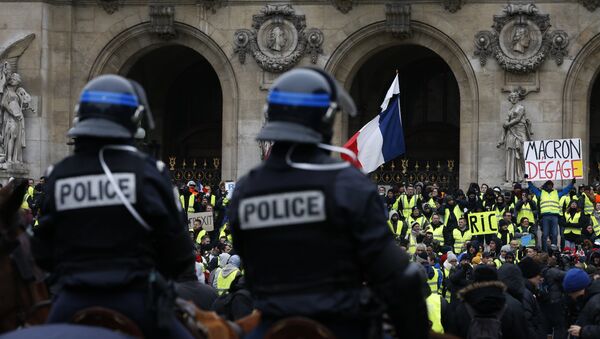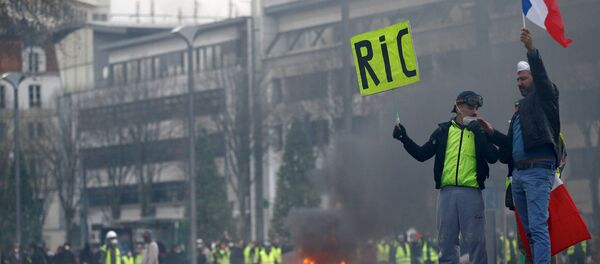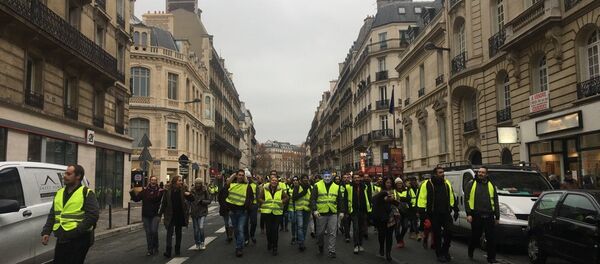Representatives of police unions in an interview with Sputnik talked about the dangers of such a measure. Lists of potentially dangerous people already exist, but until today, they were only of particular attention to the individuals on the lists as they weren't charged with specific crimes.
Now, it is assumed that there is a real restriction of civil liberties solely on the basis of suspicion and not evidence.
"Our union is strongly opposed to such a measure. I can't imagine that in a democratic state the National Commission on Informatics and Liberty (CNIL) and the political opposition would allow such an abuse of democracy," Michel Thooris told Sputnik.
Another French police union official, Alexandre Langlois, secretary-general of the VIGI-CGT-Police Union, also hit out at the bill.
"Either we live in a state of law, where people are convicted of their deeds, or we live in an authoritarian state, where people who have no criminal record are forbidden to participate in demonstrations," he noted.
It should be reminded that on 6 January, the day after the sixth protest of the "yellow vests", accompanied by large-scale riots in many cities, the Alliance Police nationale union demanded the creation of an official list of aggressive demonstrators "following the example of a list of football fans who are forbidden to appear in stadiums".
This "football" list (FNIS) contains personal information about fans, including their names, photos, addresses, club membership, as well as information about the administrative or judicial nature of their ban.
READ MORE: Rome's Support for Yellow Vests Protests Sparks Tensions With Paris
"Such a list is extremely dangerous. This is undoubtedly a political list," Michel Thooris emphasised.
Alexandre Langlois also considered this demand inappropriate, adding that the proposed measure is ineffective and will restrict liberty:
"A similar list already exists. Among the persons appearing in the files that pose a threat to national security, there is a category of persons capable of committing violent acts during demonstrations. (…) They are suspected of committing violent acts and controlled more strictly. (…) But some go further, demanding that they be barred from participating in protests. This logic is not the logic of the state of law. This means that freedoms may be limited on the basis of suspicion, not evidence".
Mathieu Zagrodzki, an expert at the Centre for Sociological research on Criminal Law and Penal Institutions (CESDIP), commented on the proposal to create a similar list in an interview with 20 Minutes: "The right to participate in demonstrations is fundamental. An administrative list would pose a threat to public freedoms: a prefectural decision involves neither a process, nor the establishment of evidence, nor the ability to defend oneself. A person may be arbitrarily entered into such a list. A constitutional question arises about the separation of executive and judicial power".
READ MORE: Fundraiser Collects Over $1Mln for Law Enforcers Injured in Yellow Vests Riots
"As in the case of the previous criminal record file, the data collected within the framework of the procedure established by the police or gendarmerie is kept in archives for many years, even if you were acquitted. It is likely that the list mentioned by the Prime Minister will be drawn upon the same principle. This measure will allow to detain any participant of the demonstration and to add to the list innocent people".
Alexandre Langlois, in turn, recalled recent large-scale protests against labour laws reform.
"Public justice rejected such prohibitions to participate in demonstrations finding them illegal".
The views expressed in this article are those of the speaker and do not necessarily reflect those of Sputnik.



